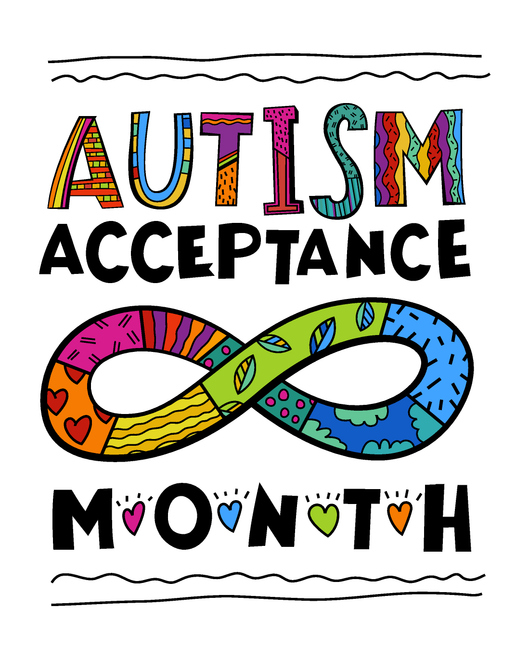Every April, Autism Acceptance Month offers an opportunity to broaden awareness and foster a more inclusive world for autistic individuals. While public recognition of autism has increased over the years, true acceptance goes beyond awareness—it means embracing neurodiversity and supporting autistic people in living authentically and fully.
From Awareness to Acceptance
For years, April was widely known as “Autism Awareness Month.” The intention was to help the public recognize the signs of autism and understand what it is. While awareness is an important first step, it often stops at basic knowledge—sometimes rooted in outdated or medicalized views that portray autism as something to be fixed or cured.
In recent years, advocacy groups—particularly those led by autistic individuals—have pushed to shift the language from “awareness” to “acceptance.” The goal is not just to make people aware that autism exists, but to encourage them to accept and celebrate autistic people as valuable members of society exactly as they are.
Understanding Neurodiversity
Autism is a natural variation in human neurology. It affects how a person perceives and interacts with the world. Some autistic people are non-speaking, some have heightened sensory sensitivity, and many experience challenges with social interaction. But autism also often comes with unique strengths, such as deep focus, creativity, honesty, and innovation.
The neurodiversity movement embraces these differences as part of the broader spectrum of human experience. It asserts that neurological differences like autism, ADHD, and dyslexia are not deficits, but variations that deserve the same respect and accommodation as any other form of diversity.
The Importance of Listening to Autistic Voices
One of the most powerful ways to support Autism Acceptance Month is by centering the voices of autistic people themselves. Too often, conversations about autism are dominated by non-autistic “experts” that may not reflect the lived experiences of those they aim to represent.
Autistic self-advocates offer critical insights into what acceptance truly means—whether it’s advocating for inclusive education, access to employment, or the freedom to stim (self-soothe through repetitive movement or sound) without judgment. By listening and amplifying these voices, we can reshape systems to be more supportive and just.
How You Can Support Autism Acceptance
- Educate yourself from autistic-led sources. Books, blogs, podcasts, and social media accounts by autistic people offer authentic perspectives.
- Challenge stereotypes. Autism doesn’t look one specific way. It’s a spectrum that includes a wide range of experiences.
- Promote inclusion. At work, school, or in your community, support environments where autistic people can thrive.
- Celebrate neurodiversity. Autism is a part of human diversity worth celebrating.
Autism Acceptance Month is a reminder that every person deserves respect, dignity, and the freedom to be themselves. Let’s go beyond passive awareness and take active steps toward understanding, acceptance, and inclusion—not just in April, but all year long. Connect with us at Spectrum Strategies to learn more about how you can create an inclusive environment and better support the autistic people in your life.

